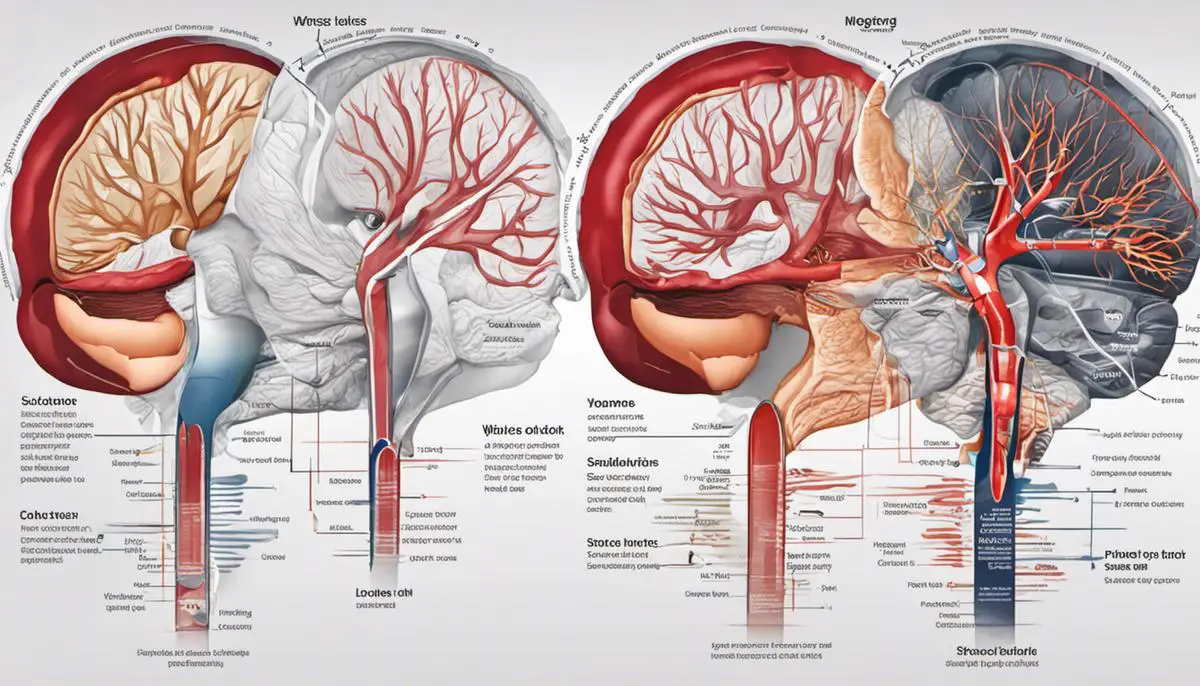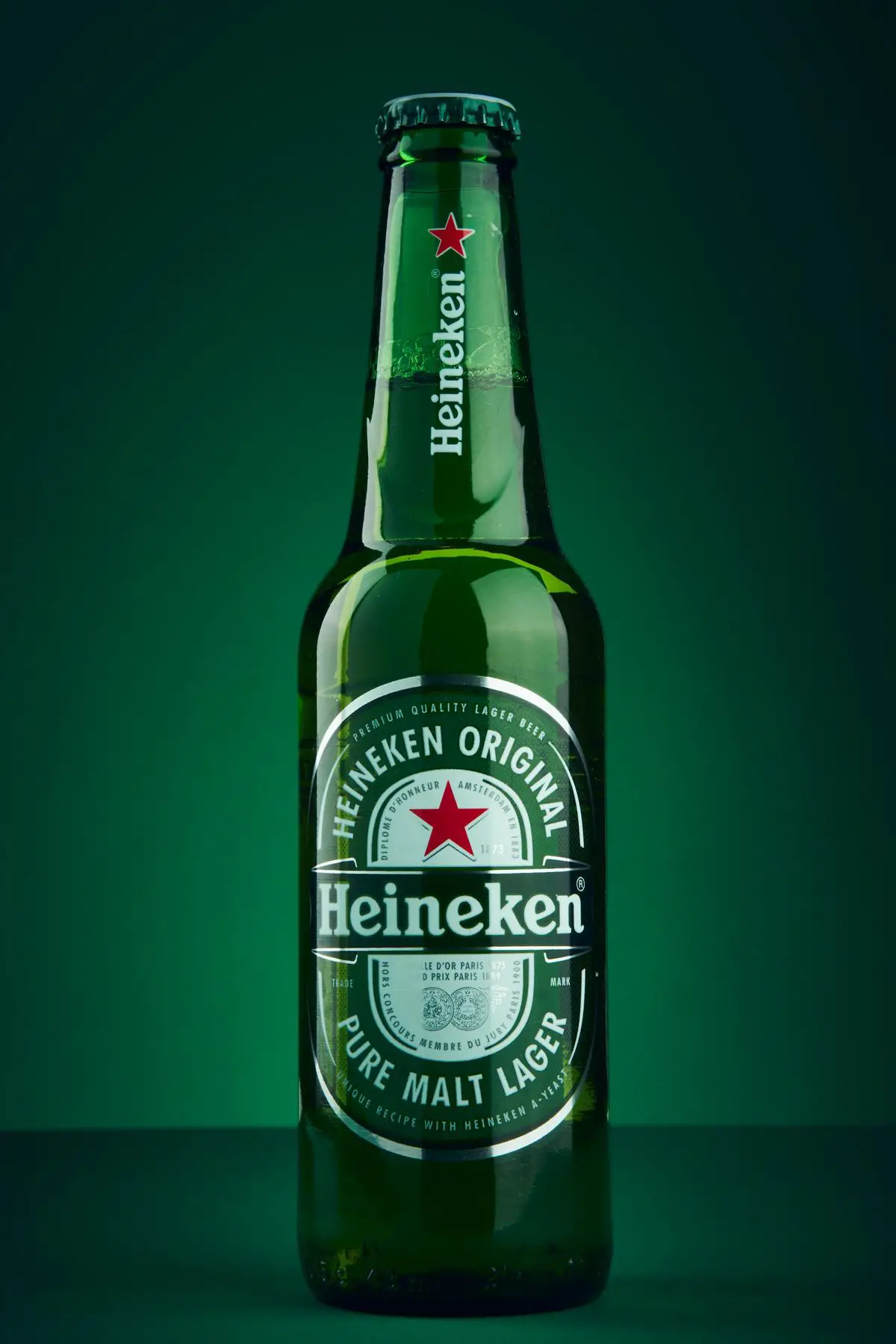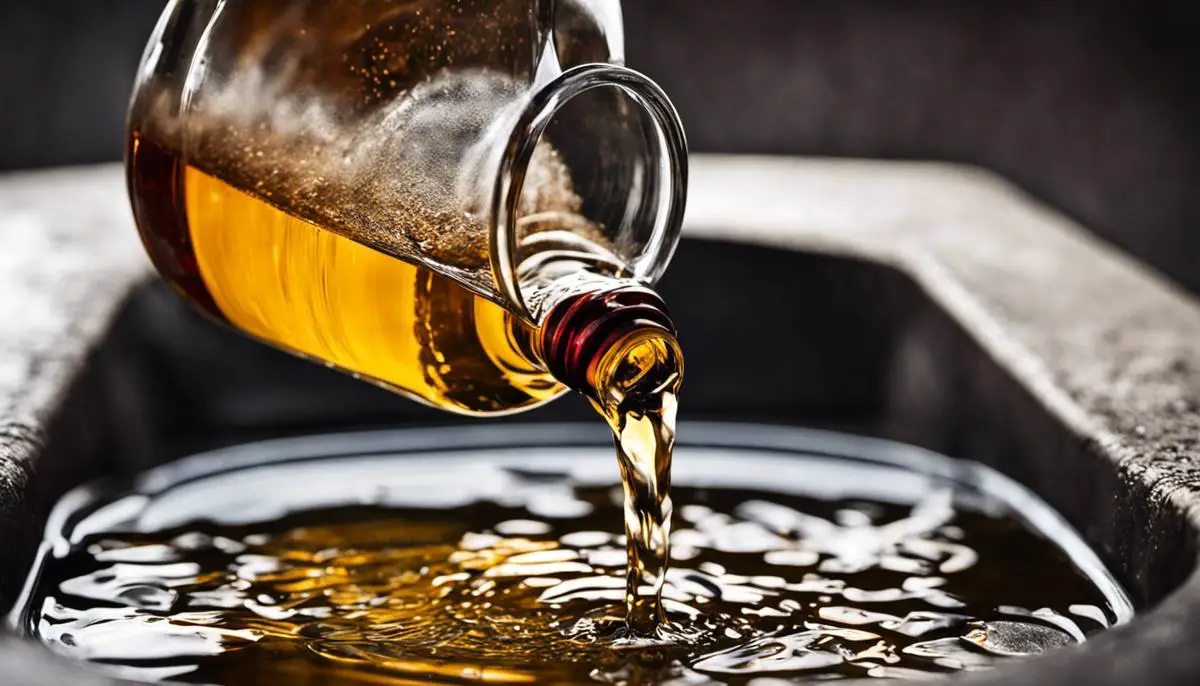Understanding the relationship between alcohol consumption and stroke risk is a crucial part of fostering a healthier lifestyle in today’s society. As strokes serve as a leading cause of severe disability, it’s of utmost importance that we comprehend this potential health threat thoroughly. This article aims to delve deep into what a stroke is, its causes, types, symptoms, and its long-term impact on an individual’s health. The discussion further extends to explore the significant link between alcohol intake and stroke risk, shedding light on the clear and science-backed facts related to the potential benefits and harms of different levels of alcohol consumption. Moreover, the essential concept of alcohol moderation and its role in reducing stroke risk are dissectively examined, thereby empowering readers with effective and practical strategies for achieving it.
Understanding Strokes
Understanding Stroke: A Primer
A stroke occurs when blood flow to the brain gets interrupted, depriving the brain cells of oxygen and nutrients, which can lead to cell death within minutes. The two main types of strokes are ischemic stroke, caused by a clot blocking the blood vessel, and hemorrhagic stroke, resulting from a blood vessel rupture in the brain. Strokes can cause temporary or permanent disabilities, depending on how long the brain lacks blood flow and the affected area.
Causes of Stroke
High blood pressure, smoking, high cholesterol, diabetes, obesity, and heart disease are among the primary risk factors contributing to stroke. Lifestyle habits like physical inactivity, poor nutrition, and heavy alcohol use can further increase these risks. Age, family history, and personal history of stroke also influence your likelihood of a stroke.
Symptoms of Stroke
Recognizing the symptoms of a stroke can play a critical role in response times and outcomes. Stroke symptoms usually come on suddenly and may include trouble speaking or understanding, paralysis or numbness on one side of the body, vision problems, headaches, and difficulties in walking.
Long-term Impact of Stroke
The effects of a stroke depend on the location of the obstruction and the extent of brain tissue affected. Long-term consequences can range from mild to severe and may include problems with thinking, awareness, attention, learning, judgment, emotional control, physical functions, communication, and social behaviors.
Stroke and Alcohol: A Link?
Moderate alcohol consumption has been associated with both benefits and risks in relation to stroke. Some studies suggest that moderate alcohol intake, particularly red wine, may be linked with a reduced risk of ischemic stroke due to its flavonoid content that possesses anti-inflammatory and antioxidant properties. However, any potential benefits must be contrasted with the knowledge that heavy drinking can increase blood pressure levels, contribute to obesity and alcohol-induced cardiomyopathy— each a significant risk factor for stroke.
Emphasizing Moderation in Alcohol Consumption
For those looking to manage their stroke risk, moderating alcohol consumption is of utmost importance. Current dietary guidelines for Americans suggest that moderate drinking involves up to one drink per day for women and no more than two drinks per day for men. However, regular heavy drinking, or even episodic binge drinking, can significantly increase the risk of experiencing a stroke. Limiting alcohol intake within these moderate parameters, or abstaining completely, is a vital step in stroke prevention. Those who are already at risk for stroke due to conditions such as high blood pressure or diabetes might find it beneficial to consult with a medical professional for individualized guidance on alcohol consumption.

Relationship between Alcohol and Stroke Risk
The Interplay Between Stroke and Alcohol Intake
A stroke is a serious medical event that happens when the brain’s blood supply is interrupted. This interruption could occur due to a blood clot, called an ischemic stroke, or a ruptured blood vessel that causes bleeding in the brain, known as a hemorrhagic stroke. These situations result in varying degrees of damage to brain cells, leading to a spectrum of health outcomes – from modest functional impairment to severe disability or even death. Understanding the relationship between stroke occurrence and alcohol consumption can be an impactful measure in reducing risk and promoting overall health.
The Link Between Alcohol and Stroke Risk
Scientific studies have found a complex relationship between alcohol and stroke risk. Moderate alcohol consumption, defined by the Dietary Guidelines for Americans as up to one drink per day for women and up to two drinks per day for men, has been correlated with a reduced risk for ischemic stroke. However, heavy alcohol use, considered as consumption of four or more drinks daily or at least eight or more drinks per week for women and five or more drinks daily or at least 15 or more drinks per week for men, has been found to increase the risk for both ischemic and hemorrhagic strokes.
The reason for this difference lies in the effects of alcohol on the human body. Mild to moderate drinking can have a beneficial effect on the cardiovascular system, potentially reducing the risk of ischemic stroke by increasing high-density lipoprotein cholesterol (the “good” cholesterol), reducing blood clot formation, and improving insulin sensitivity.
The Dangers of Excessive Alcohol Consumption
On the other hand, excessive or binge drinking can increase the risk of stroke in a number of ways. Chronic heavy drinking can lead to hypertension, a major risk factor for stroke. It can also increase the likelihood of developing atrial fibrillation, a condition characterized by irregular and often rapid heart rate that increases the risk of stroke.
Moreover, heavy drinking can lead to liver disease and a reduction in platelets, which are necessary for blood clotting. When there are fewer platelets in the blood, it can lead to excessive bleeding, increasing the risk of a hemorrhagic stroke.
Quantity Matters: Alcohol Consumption and Stroke Risk
The impact of alcohol on stroke risk is nuanced. While moderate drinking might have some benefits, those become null or even reverse once consumption crosses into heavy or binge drinking territory.
Therefore, it’s essential to understand the importance of moderation when it comes to alcohol. Over time, heavy alcohol use can lead to serious health problems, including increased risk of stroke. If you choose to drink, do so in moderation.
Striking a Healthy Balance
Health needs and risk factors vary from person to person, making it essential to consult with a healthcare professional to understand your personal health profile. They can provide insights into your individual risk of stroke and guide you through the implications of alcohol consumption on your health. It’s worth noting that abstaining from alcohol does not elevate stroke risk, and implementing lifestyle and dietary modifications can contribute significantly towards lowering your risk.

Understanding Alcohol Moderation
Decoding Alcohol Moderation
When referring to alcohol consumption, moderation implies adhering to a limited intake within established guidelines. As per the Dietary Guidelines for Americans issued by the U.S. Department of Health and Human Services, moderate alcohol consumption is capped at one drink a day for women and two drinks a day for men.
Weekly Alcohol Consumption Limits
While the above-mentioned guidelines clarify daily limits of alcohol intake, there are also recommendations for weekly consumption. The National Institute on Alcohol Abuse and Alcoholism suggests that women should consume no more than 7 drinks per week, while men should limit their consumption to 14 drinks per week. It’s important to remember that these guidelines are a maximum and not a recommended amount to consume regularly.
Individual Alcohol Tolerance Levels
Alcohol tolerance levels can vary significantly from one person to another. Factors that can affect an individual’s alcohol tolerance include their weight, age, sex, physical health, mental health, whether or not they are used to drinking alcohol, and even genetic disposition. Therefore, an amount of alcohol that is moderate for one person can be excessive for another.
It’s also important to note that a high tolerance for alcohol doesn’t reduce its negative impact on physical health. In fact, those who regularly consume alcohol in large quantities may be at a higher risk of developing alcoholism, liver disease, and other health problems.
Understanding Alcohol Moderation and Stroke Risk
The effects of alcohol consumption on stroke risk can be nuanced and dependent on the quantity consumed. Numerous studies suggest a complexity in the relationship between stroke risk and moderate drinking. For instance, there is evidence to indicate that moderate consumption may offer some protection against ischemic stroke. On the other hand, heavy or binge drinking has been consistently linked to an increased stroke risk.
Research published in Circulation, an American Heart Association journal, disclosed that light to moderate alcohol consumption (up to two drinks per day) was associated with a reduced risk of ischemic stroke. However, the individuals involved in this study were not at high risk, emphasising the importance of individual health evaluations.
Significantly, excessive drinking is a recognised risk factor for both ischemic and hemorrhagic strokes, as it can result in high blood pressure, irregular heart rhythms, and elevated triglyceride levels – conditions that could escalate the risk of stroke.
Binge drinking, classified as four or more drinks within two hours for women and five or more drinks for men, even if the total alcohol consumption for the week remains moderate, can have detrimental impacts. Indeed, a certain study linked binge drinking to a 1.62 times increased stroke risk compared to light drinking.
Therefore, those who are concerned about their personal stroke risk should consult their healthcare provider regarding their drinking habits. Practicing moderation, even for individuals without known risk factors, is imperative to mitigate potential negative effects of alcohol. Additionally, adopting healthy lifestyle habits such as regular physical activity, a well-balanced diet, and sufficient sleep can also contribute to stroke risk reduction.

Benefits of Alcohol Moderation on Stroke Risk
Alcohol Use: A Fine Balance for Health
When consumed appropriately, alcohol may indeed provide some health benefits. However, it is crucial to note that ‘moderation’ plays a vital role. The American Heart Association defines moderate drinking as up to one drink per day for women and up to two drinks per day for men, as women generally have a lower body weight and consequently are affected more by alcohol. Therefore, understanding one’s limits and practicing responsible drinking could help manage personal health risks effectively, including the risk of stroke.
Physiological Benefits of Moderated Alcohol Consumption
Research suggests that moderate drinking, especially of red wine, is associated with a lower risk of cardiovascular disease, including stroke. The key beneficial component in red wine is resveratrol, an antioxidant that may help prevent heart disease by increasing levels of ‘good’ cholesterol and protecting against artery damage. Alcohol can also prevent the formation of blood clots, which can lead to strokes.
Debunking Myths of ‘Healthy’ Excessive Drinking
Contrary to some popular beliefs, excessive drinking doesn’t offer health benefits. In fact, heavy or binge drinking can significantly increase your risk of stroke. High-intensity drinking can lead to high blood pressure, a leading risk factor for stroke. It can also trigger atrial fibrillation, a heart condition associated with stroke.
Moreover, heavy drinking can impair the liver’s ability to produce enzymes that regulate blood clotting. It can also lead to obesity and diabetes, both of which increase the risk of stroke.
Impact of Alcohol Moderation on Stroke Risk
With moderate drinking, the risk of stroke can be reduced. A meta-analysis of 27 studies found that low to moderate alcohol consumption was associated with a decreased risk of stroke. However, the positive impact on stroke tends to diminish if alcohol consumption exceeds moderation.
Summary
Alcohol can have both benefits and drawbacks when it comes to health – but the key lies in moderation. While enjoying alcohol responsibly can potentially offer some health advantages, overindulgence can lead to detrimental health conditions like high blood pressure, obesity, and irregular heartbeat. These, in turn, can significantly increase the chances of a stroke. To maintain a healthy balance, it is advisable to speak with a healthcare professional about your consumption. They can provide guidelines and recommendations for those who are heavy drinkers and are keen on reducing their stroke risk by limiting or even eliminating alcohol.

Tips for Achieving Alcohol Moderation
Understanding Alcohol Moderation And Its Role In Stroke Risk
Scientific research is continually studying the effects of alcohol on our body systems, and a significant link has been found between alcohol consumption and stroke risk. Regular to heavy drinking has been found to elevate the risk of developing hypertension and arrhythmia, both of which increase the likelihood of a stroke. Thus, moderating alcohol intake becomes a critical lifestyle change for decreasing the risk of a stroke.
However, we must first understand what constitutes ‘moderation’ in alcohol consumption. As per the Centers for Disease Control and Prevention (CDC), moderate drinking is classified as up to one drink per day for women and up to two drinks per day for men. Crucially, these guidelines refer to the amount consumed on any single day, not averaged over several days.
Coping Mechanisms for Stress That Don’t Rely on Alcohol
Stress can often lead people to consume more alcohol, which inadvertently increases the risk of stroke. So, having effective coping mechanisms for stress is crucial. Opt for methods like exercise and meditation, which have been shown to reduce stress levels significantly. Regular physical activity can also improve overall health and reduce the risk of stroke due to its effect on controlling blood pressure and weight.
Effective time management and establishing a balanced routine, including a well-rounded diet and ample sleep, can also help manage stress better. Other options include finding hobbies and distractions that can offer mental respite, such as reading books, listening to music, or engaging in crafts and other relaxing activities.
Therapy and Support Systems for Alcohol Moderation
Reducing alcohol consumption might not always be a straightforward process. Dependence on or addiction to alcohol can provide significant hurdles to moderation. In such situations, seeking professional help can be of great benefit. Therapy sessions, guided by psychologists or psychiatrists, can help individuals understand the underlying symptoms related to their alcohol use, like depression, anxiety, or PTSD.
Support groups such as Alcoholics Anonymous (AA) can also be highly beneficial. They can provide an understanding community of individuals dealing with similar struggles, which can make the path to reducing alcohol intake less daunting. In more severe cases, rehabilitation centers provide intensive support and medical treatment to help individuals overcome alcohol dependence.
Lasty, remember that every individual is different, and so the journey to alcohol moderation will differ depending on personal circumstances, psychological traits, and the severity of alcohol dependence. It’s important that the process fits the individual and is, above all, sustainable in the long run. This journey to moderation, while challenging, can ultimately lead to health benefits and reduce the risk of stroke significantly.

Emphasizing the importance of moderation, it’s crucial to understand that while controlled drinking may offer some benefits, excessive indulgence can greatly elevate stroke risks. Thus, by grasping this middle ground – by recognizing our own alcohol tolerance and adhering to recommended limits – we can often mitigate these risks. Factor in additional components like lifestyle changes or stress relief strategies that don’t rely on alcohol, and we’ve got a comprehensive plan in place. Getting educated about strokes and alcohol moderation, interpreting the scientific findings correctly, and employing the strategies mentioned may not only optimize your health but could potentially save lives. Let us utilize our knowledge as a valuable tool for the well-being of not only ourselves but the entire community.
